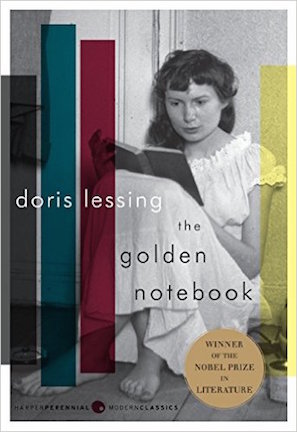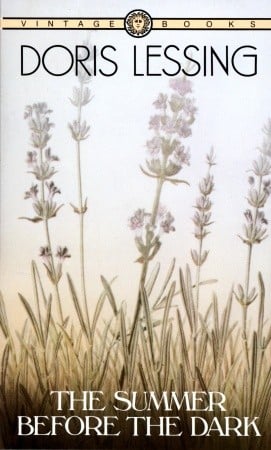Brilliant Quotes by Doris Lessing
By Emma Ward | On July 11, 2017 | Updated October 27, 2022 | Comments (0)

Doris Lessing (1919 – 2013) was born in Persia, raised in Rhodesia and spent many years in London. Her first novel, The Grass is Singing, was published in 1950 and had a literary breakthrough with The Golden Notebook (1962), now considered a feminist classic.
When she won the Nobel Prize for Literature in 2007 the jury described her as “that epicist of the female experience, who with skepticism, fire and visionary power has subjected a divided civilization to scrutiny.” In 2008 The Times put her at number five in the list of “The 50 Greatest British Writers since 1945.”
Doris Lessing long used her platform as an outspoken opponent of apartheid in South Africa, and spoke regularly about the subject. Her brilliance runs through all her work; here are some quotes from her various works to prove the point.
. . . . . . . . .
“We are all of us made by war, twisted and warped by war, but we seem to forget it.”
. . . . . . . . .
“Whatever you’re meant to do, do it now. The conditions are always impossible.”
. . . . . . . . .
“There is no doubt fiction makes a better job of the truth.” (Under My Skin, 1994)
. . . . . . . . .
“Novels give you the matrix of emotions, give you the flavour of a time in a way formal history cannot.”
. . . . . . . . .
“There is only one way to read, which is to browse in libraries and bookshops, picking up books that attract you, reading only those, dropping them when they bore you, skipping the parts that drag — and never, never reading anything because you feel you ought, or because it is part of a trend or a movement.
Remember that the book which bores you when you are twenty or thirty will open doors for you when you are forty or fifty-and vise versa. Don’t read a book out of its right time for you. ”
. . . . . . . . .
“With a library you are free, not confined by temporary political climates. It is the most democratic of institutions because no one — but no one at all — can tell you what to read and when and how.” (Index on Censorship, March/April 1999)
. . . . . . . . .
Learn more about Doris Lessing
. . . . . . . . .
“Words. Words. I play with words, hoping that some combination, even a chance combination, will say what I want.”
. . . . . . . . .
“Parents should leave books lying around marked ‘forbidden’” if they want their children to read.” (Interview with Amanda Craig, The Times, London; November 23, 2003)
. . . . . . . . .
“Advice to young writers? Always the same advice: learn to trust our own judgment, learn inner independence, learn to trust that time will sort the good from the bad — including your own bad.”
. . . . . . . . .
“I’ve been close to the literary machine now for a long time. I know what’s good about it and what’s bad about it. It’s not the publishers I’ve had it in for so much as the reviewers and the critics, whom I find extraordinarily predictable …”
. . . . . . . . .
“As you get older, you don’t get wiser. You get irritable.”
. . . . . . . . .
“I can’t say I’m overwhelmed with surprise. I’m 88 years old and they can’t give the Nobel to someone who’s dead, so I think they were probably thinking they’d probably better give it to me now before I’ve popped off.”
. . . . . . . . .
“That is what learning is. You suddenly understand something you’ve understood all your life, but in a new way.” (The Four-Gated City, 1969)
. . . . . . . . .
Lessing’s best-known work is The Golden Notebook
. . . . . . . . .
“A writer falls in love with an idea and gets carried away.”
. . . . . . . . .
“You should write, first of all, to please yourself. You shouldn’t care a damn about anybody else at all. But writing can’t be a way of life – the important part of writing is living. You have to live in such a way that your writing emerges from it.”
. . . . . . . . .
“In the writing process, the more the story cooks, the better. The brain works for you even when you are at rest. I find dreams particularly useful. I myself think a great deal before I go to sleep and the details sometimes unfold in the dream.” (Interview with Herbert Mitgang, “Mrs. Lessing Addresses Some of Life’s Puzzles,” The New York Times, April 22, 1984)
. . . . . . . . .
“You can only learn to be a better writer by actually writing. I don’t know much about creative writing programs. But they’re not telling the truth if they don’t teach, one, that writing is hard work and, two, that you have to give up a great deal of life, your personal life, to be a writer.” (Ibid)
. . . . . . . . .
“I am sure everyone has had the experience of reading a book and finding it vibrating with aliveness, with colour and immediacy. And then, perhaps some weeks later, reading it again and finding it flat and empty. Well, the book hasn’t changed: you have.”
. . . . . . . . .
. . . . . . . . .
“Any human anywhere will blossom in a hundred unexpected talents and capacities simply by being given the opportunity to do so.”
. . . . . . . . .
“I don’t know why I have to write. It’s just something I have to do. If I don’t write for any length of time, I get very irritable. If I had to stop, I would probably start wandering the streets, telling myself stories out loud.”
. . . . . . . . .
“It is terrible to destroy a person’s picture of himself in the interests of truth or some other abstraction.” (The Grass is Singing, 1950)
. . . . . . . . .
“I do not think writers ought ever to sit down and think they must write about some cause, or theme … If they write about their own experiences, something true is going to emerge.” (“Literature Nobel Awarded to Writer Doris Lessing” All Things Considered – NPR, October 11, 2007)
. . . . . . . . .
. . . . . . . . .
Quotes from The Golden Notebook (1962)
“What’s terrible is to pretend that second-rate is first-rate. To pretend that you don’t need love when you do; or you like your work when you know quite well you’re capable of better.”
. . . . . . . . .
“Remember that the book which bores you when you are twenty or thirty will open doors for you when you are forty or fifty-and vise versa. Don’t read a book out of its right time for you.”
. . . . . . . . .
“Art is the mirror of our betrayed ideals.”
. . . . . . . . .
“Very few people really care about freedom, about liberty, about the truth, very few. Very few people have guts, the kind of guts on which a real democracy has to depend. Without people with that sort of guts a free society dies or cannot be born.”
. . . . . . . . .
“Most novels, if they are successful at all, are original in the sense that they report the existence of an area of society, a type of person, not yet admitted to the general literate consciousness.”
. . . . . . . . .
“Do you know what people really want? Everyone, I mean. Everybody in the world is thinking: I wish there was just one other person I could really talk to, who could really understand me, who’d be kind to me. That’s what people really want, if they’re telling the truth.”
. . . . . . . . .





Leave a Reply